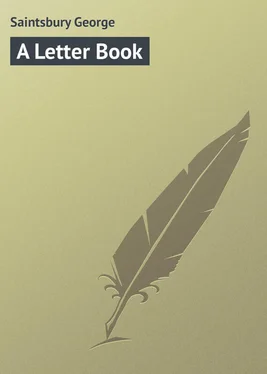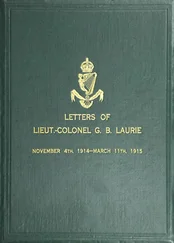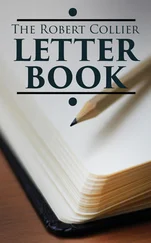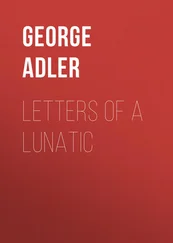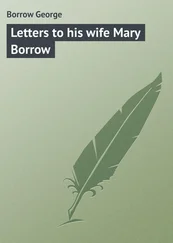George Saintsbury - A Letter Book
Здесь есть возможность читать онлайн «George Saintsbury - A Letter Book» — ознакомительный отрывок электронной книги совершенно бесплатно, а после прочтения отрывка купить полную версию. В некоторых случаях можно слушать аудио, скачать через торрент в формате fb2 и присутствует краткое содержание. ISBN: , Жанр: foreign_language, foreign_prose, на английском языке. Описание произведения, (предисловие) а так же отзывы посетителей доступны на портале библиотеки ЛибКат.
- Название:A Letter Book
- Автор:
- Жанр:
- Год:неизвестен
- ISBN:http://www.gutenberg.org/ebooks/31072
- Рейтинг книги:3 / 5. Голосов: 1
-
Избранное:Добавить в избранное
- Отзывы:
-
Ваша оценка:
- 60
- 1
- 2
- 3
- 4
- 5
A Letter Book: краткое содержание, описание и аннотация
Предлагаем к чтению аннотацию, описание, краткое содержание или предисловие (зависит от того, что написал сам автор книги «A Letter Book»). Если вы не нашли необходимую информацию о книге — напишите в комментариях, мы постараемся отыскать её.
A Letter Book — читать онлайн ознакомительный отрывок
Ниже представлен текст книги, разбитый по страницам. Система сохранения места последней прочитанной страницы, позволяет с удобством читать онлайн бесплатно книгу «A Letter Book», без необходимости каждый раз заново искать на чём Вы остановились. Поставьте закладку, и сможете в любой момент перейти на страницу, на которой закончили чтение.
Интервал:
Закладка:
The excellence of Scott's, though always discoverable in Lockhart, was perhaps never easily appreciable till they were separately collected and published not very many years ago. It may indeed be suggested that the "Life and Letters" system, though very valuable as regards the "Life" is apt a little to obscure the excellence of the "Letters" themselves. Of this particular collection it is not too much to say that while it threw not the least stain on the character of one of the most faultless (one singular and heavily punished lapse excepted) of men of letters, it positively enhanced our knowledge of the variety of his literary powers.
Perhaps however the best of letter-writers amongst these four protagonists of the great Romantic Revival in England (the inevitable attempt sometimes made now to quarrel with that term is as inevitably silly) is the least good poet. Southey's letters, never yet fully but very voluminously published, have not been altogether fortunate in their fashion of publication. There have been questionings about the propriety of "Selected" Works; but there surely can be little doubt that in the case of Letters a certain amount of selection is not only justifiable but almost imperative. Everyone at all addicted to correspondence must know that in writing to different people on the same or closely adjacent days, if "anything has" in the common phrase "happened" he is bound to repeat himself. He may, if he has the sense of art, take care to vary his phrase even though he knows that no two letters will have the same reader; but he cannot vary his matter much. Southey's letters, in the two collections by his son and his son-in-law, were edited without due regard to this: and the third – those to Caroline Bowles, his second wife – might have been "thinned" in a different way. But the bulk of interesting matter is still very large and the quality of the presentation is excellent. If anyone fears to plunge into some dozen volumes let him look at the "Cats" and the "Statues" of Greta Hall, printed at the end of the Doctor , but both in form and nature letters. He will not hesitate much longer, if he knows good letter-stuff when he sees it. 25 25 For a singular misjudgment on this point see Prefatory Note infra .
Most of the second group wrote letters worth reading, but only one of them reaches the first rank in the art; it is true that he is among the first of the first. The letters of Landor supply not the least part of that curious problem which is presented by his whole work. They naturally give less room than the apices of his regular prose and of his poetry for that marvellous perfection of style and phrase which is allowed even by those who complain of a want of substance in him. And another complaint of his "aloofness" affects them in two ways rather damagingly. When it is present it cuts at the root of one of the chief interests of letters, which is intimacy. When it is absent, and Landor presents himself in his well-known character of an angry baby (as for instance when he remarked of the Bishop who did not do something he wanted, that "God alone is great enough for him [Walter Savage Landor] to ask anything of twice ") he becomes merely – or perhaps to very amiable folk rather painfully – ridiculous. De Quincey and Hazlitt diverted a good deal of what might have been utilised as mere letter-writing faculty into their very miscellaneous work for publication. Moore could write very good letters himself: but is perhaps most noted and notable in connection with the subject as being one of the earliest and best "Life-and-Letters" craftsmen in regard to Byron.
But none of these restrictions or provisos is requisite, or could for a moment be thought of, in reference to Charles Lamb. Of him, as of hardly any other writer of great excellence (perhaps Thackeray is most like him in this way) it can be said that if we had nothing but his letters we should almost be able to detect the qualities which he shows in his regular works. Some of the Essays of Elia and his other miscellanies are or pretend to be actual letters. Certainly not a few of his letters would seem not at all strange and by no means unable to hold up their heads, if they had appeared as Essays of that singularly fortunate Italian who had his name taken, not in vain but in order to be titular author of some of the choicest things in literature.
Indeed that unique combination of bookishness and native fancy which makes the "Eliesque" quality is obviously as well suited to the letter as to the essay, and would require but a stroke or two of the pen, in addition or deletion, to produce examples of either. One often feels as if it must have been, as the saying goes, a toss-up whether the London Magazine or some personal friend got a particular composition; whether it was issued to the public direct or waited for Serjeant Talfourd to collect and edit it. The two English writers whom, on very different sides of course, Lamb most resembles, and whom he may be said to have copied (of course as genius copies) most, are Sterne and Sir Thomas Browne. But between the actual letters and the actual works of these two, themselves, there is a great difference, while (as has just been noted) in Lamb's case there is none. The reason of course is that though Sir Thomas is one of our very greatest authors and the Reverend Yorick not by any means unplaced in the running for greatness, both are in the highest degree artificial: while Lamb's way of writing, complex as it is, necessitating as it must have done not a little reading and (as would seem almost necessary) not a little practice, seems to run as naturally as a child's babble. The very tricks – mechanical dots, dashes, aposiopeses – which offend us now and then in Sterne; the unfamiliar Latinisms which frighten some and disgust others in Browne, drop from Lamb's lips or pen like the pearls of the Fairy story. Unless you are born out of sympathy with Elia, you never think about them as tricks at all. Now this naturalness – it can hardly be said too often here – is the one thing needful in letters. The different forms of it may be as various and as far apart from each other as those of the other Nature in flora or fauna, on mountain and sea, in field and town. But if it is there, all is right.
There are few more interesting groups in the population of our subject than that formed by the three poets whom we mentioned last when classifying the epistolers of the early nineteenth century. There is hardly one of them who has not been ranked by some far from contemptible judgments among our greatest as poets; and merely as letter-writers they have been put correspondingly high by others or the same. It is rather curious that the most contested as to his place as a poet has been, as a rule, allowed it most easily as a letter-writer. The enormous vogue which Byron's verse at once attained both at home and abroad – has at home if not abroad (where reputations of poets often depend upon extra-poetical causes) long ceased to be undisputed: indeed has chiefly been sustained by spasmodic and not too successful exertions of individuals. It was never, of course, paralleled in regard to his letters. But these letters early obtained high repute and have never, in the general estimate, lost it. Some good judges even among those who do not care very much for the poems, have gone so far as to put him among our very best epistolers; and few have put him very much lower. Acceptance of the former estimate certainly – perhaps even of the latter – depends however upon the extent to which people can also accept recognition in Byron of the qualities of "Sincerity and Strength." That he was always a great though often a careless craftsman, and sometimes a great artist in literature, nobody possessed of the slightest critical ability can deny or doubt. But there are some who shake their heads over the attribution of anything like "sincerity" to him, except very occasionally: and who if they had to translate his "strength" into Greek would select the word Bia ("violence") and not the word Kratos (simple "strength") from the dramatis personae of the Prometheus Vinctus . Now "sincerity" of a kind – even of that kind which we found in Walpole and did not find in Pope – has been contended for here as a necessity in the best, if not in all good, letters; and "violence" is almost fatal to them. Of a certain kind of letter Byron was no doubt a skilful practitioner. 26 26 Particularly when he is able to apply the Don Juan mood of sarcastic if rather superficial life-criticism in which he was a real master.
But to some it will or may always seem that the vital principle of his correspondence is to that of the real "Best" as stage life to life off the stage. These two can sometimes approach each other marvellously: but they are never the same thing.
Интервал:
Закладка:
Похожие книги на «A Letter Book»
Представляем Вашему вниманию похожие книги на «A Letter Book» списком для выбора. Мы отобрали схожую по названию и смыслу литературу в надежде предоставить читателям больше вариантов отыскать новые, интересные, ещё непрочитанные произведения.
Обсуждение, отзывы о книге «A Letter Book» и просто собственные мнения читателей. Оставьте ваши комментарии, напишите, что Вы думаете о произведении, его смысле или главных героях. Укажите что конкретно понравилось, а что нет, и почему Вы так считаете.
